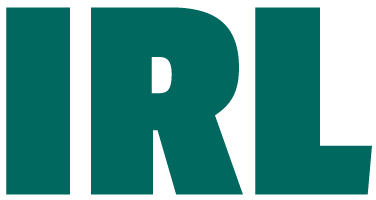What is the correlation between large companies and large insurance brokers?
Seems obvious but I thought it might be instructive to compile a few reasons which separate large brokers from the rest of the pack. I read somewhere that 80 percent of brokerages and agencies in the United States remain independently owned.
Whether true or not there are a lot of small brokerages and agencies serving the needs a small and middle-sized companies – and likely do so very well.
So back to the correlation between large companies and large insurance brokers. Thi correlation can be attributed to a number of factors:
Complexity of Needs: Large companies typically have more complex and diverse insurance needs compared to smaller businesses. They require coverage for a wide range of risks, including property, liability, employee benefits, and specialized industry-specific risks. Large insurance brokers have the expertise and resources to handle these complex needs.
Customized Solutions: Large companies often need customized insurance solutions tailored to their specific operations and risk profiles. Large insurance brokers have the capacity to design and negotiate bespoke insurance programs, ensuring comprehensive coverage that aligns with the company's risk management strategy.
Global Reach: Many large companies operate on a global scale, necessitating insurance coverage in multiple jurisdictions. Large insurance brokers have a global presence and can provide consistent service and coverage across different countries, which smaller brokers may not be able to offer. Consistent and uniform service is a challenge for even the largest of the big ones – it isn’t easy. This is a topic for another time.
Buying Power: Large insurance brokers often have significant leverage with insurance carriers due to the volume of business they bring. This can result in better terms, conditions, and pricing for their clients, which is particularly beneficial for large companies seeking to optimize their insurance costs.
Risk Management Services: Large brokers offer extensive risk management and consulting services, including loss prevention, claims management, and compliance support. These services are valuable to large companies looking to mitigate risks and manage their insurance programs effectively. With smaller brokers and agencies, the task of providing loss prevention is often not done or left to the carrier, if at all.
Technology and Data Analytics: Large brokers invest heavily in technology and data analytics to provide advanced risk assessment and management tools. These capabilities are attractive to large companies that prioritize data-driven decision-making in their risk management processes.
Regulatory Compliance: Large companies face stringent regulatory requirements and need insurance brokers who are well-versed in compliance issues across different regions and industries. Large brokers typically have specialized teams to ensure that their clients remain compliant with all relevant regulations.
In summary, the correlation between large companies and large insurance brokers is driven by the need for expertise, global reach, customized solutions, and comprehensive risk management services that large brokers are well-equipped to provide.
Parting thought
ID, remove VPN Apps on your personal devices
I just read about the 911 S5 VPN/proxy service and was immediately alarmed. I was unsure if any of my computers had been compromised because during travel I use several VPNs. You can be sure your company’s IT people have this covered but what about your personal devices?
You should know more about this.
Does 911 S5 just affect Windows users?
The 911 S5 proxy service primarily affects users of Windows, but it doesn't exclusively target them. Here’s an overview of the situation:
- Primary Target: The 911 S5 service is a proxy/VPN service that was heavily used to distribute residential proxies. Many of the installations and tools provided by 911 S5 were designed to work on Windows, making Windows users the primary target.
- Malware and Trojans: The 911 S5 service often involved the distribution of malware and Trojans. These malicious programs were typically designed to compromise Windows systems, turning them into proxy nodes. The Windows operating system's prevalence and certain security vulnerabilities made it a common target for these types of attacks.
- Other Operating Systems: While the primary focus was on Windows, it's important to note that no operating system is completely immune to threats. Users on macOS, Linux, and mobile platforms can also be affected if they are tricked into installing malicious software, especially if they use cross-platform applications or if attackers find vulnerabilities in non-Windows systems.
- User Behavior and Practices: The risk of being affected also depends on user behavior. Downloading software from untrusted sources, falling for phishing schemes, or using compromised websites can lead to infection, regardless of the operating system. Therefore, while the technical aspect of 911 S5 primarily targeted Windows, unsafe practices can affect users across different platforms.
In summary, while 911 S5’s tools and malware were mainly designed for Windows systems, users on other operating systems should still practice good security hygiene to avoid similar threats.
How to Identify and Remove VPN Applications That Contain 911 S5 Back Doors
















